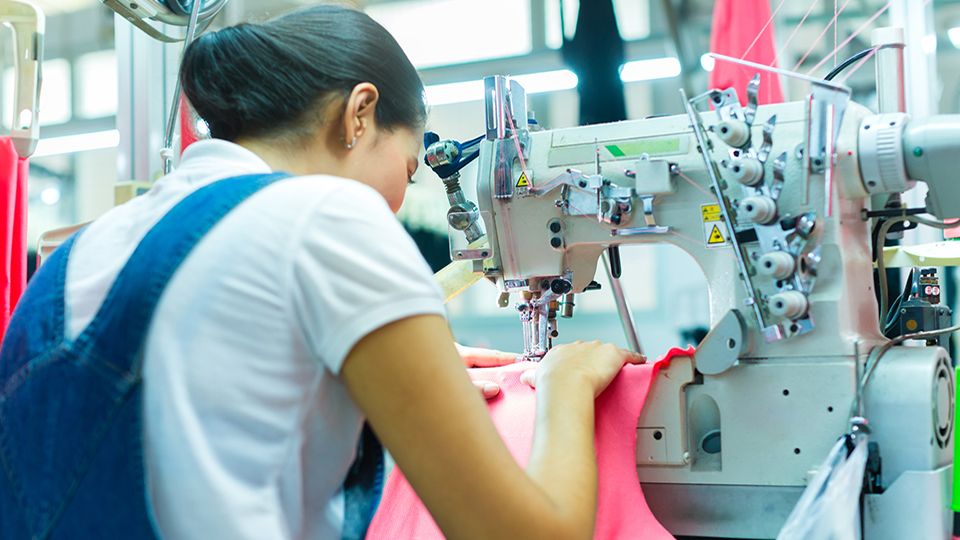Allegations of forced labour were found in the supply chains of 46% of companies benchmarked by Business & Human Rights Resource Centre project KnowTheChain.
According to KnowTheChain Apparel & Footwear Benchmark for 2022/3, which looked at 65 of the world’s largest apparel and footwear companies, the average score for protecting workers in the supply chain against forced labour risks was 21 out of 100 and over 20% of companies scored five out of 100 or less.
The majority of the allegations of forced labour related to the use of alleged Uyghur forced labour either directly or indirectly in companies’ supply chains. This could be through the transfer of workers or through suppliers which have subsidiaries based in the Xinjiang Uyghur Autonomous Region (XUAR) of China, KnowTheChain found.
Adidas, Asos and Primark reported they had engaged or were currently engaging with groups representing affected workers, such as the Coalition to End Forced Labour in the Uyghur Region.
Exacerbating risk
KnowTheChain stated increased conflict, the climate crisis and economic instability have exacerbated the risk of forced labour but company policy and practice is falling short.
An investor briefing on the findings noted companies are “largely reactive to human rights violations, rather than evidencing robust, embedded human rights and environmental due diligence practices designed to prevent them”.
Companies are also lagging in the area of remedies with KnowTheChain finding companies routinely failed to provide and disclose remedy to workers whose rights have been violated. They also failed to show grievance processes and how much these were being used.
Transparency improvements
However, the group also found improvements in supply chain transparency and in companies in Asia. Ten companies, including Amazon, Prada and Ralph Lauren, either disclosed more information on first-tier suppliers or improved existing disclosures. Three companies disclosed a supplier list for their second or third tiers for the first time while six disclosed more on sourcing countries for the raw materials they use.
In Asia, all benchmarked companies showed progress apart from Fast Retailing and Puma supplier, Shenzhou, which scored zero.
See also:- Human rights failings from ICT sector ‘red flag’ for investors
KnowTheChain highlighted Japanese company Fast Retailing for updating its supplier list to include all first-tier garment factories and data on migrant workers in the first and second tier of its supply chains.
It also updated its supplier code to prohibit worker-paid recruitment fees, joined the pilot Employment Injury Scheme in Bangladesh and signed the Pakistan Accord – a legally binding commitment to ensure worker safety in garment factories.
Engaging companies
Investors should be ready to account for increasing financial risks for laggards as regulation, litigation and local labour movements are driving progress, according to KnowTheChain.
They should also be engaging companies with questions such as:
- Do you provide suppliers with forecasts of buying plans for the coming season or year to allow for proper labour staffing and management?
- Do you agree to long-term contracts and/or repeat orders with suppliers?
- How are your buyers incentivised (e.g. solely on sales and merchandise margin)?
- Are human rights factors specifically and clearly embedded into buyer incentives in any way?
- What quantitative metrics does your management team rely upon to evaluate supplier performance on human rights or labour practices?
Sharing prosperity
Áine Clarke, head of KnowTheChain and investor strategy lead at Business & Human Rights Resource Centre, said: “While the largest apparel companies have experienced staggering revenue growth and profit margins since the pandemic, those who work for them continue to face some of the most impoverished conditions.
“The largest apparel companies have experienced a combined growth of $42bn since 2022, yet an estimated $71m is still owed to workers because of wage and severance theft committed during the pandemic. ”
She noted this disparity is most evident in luxury fashion where she said record revenue growth and profit margins seem “increasingly divorced from workers, and working conditions, in global supply chains”.
“For multiple years running, luxury brands such as LVMH (6/100) and Salvatore Ferragamo (4/100) have performed among the poorest in the benchmark,” she said.
Clarke also noted recent regulation companies should be paying attention to: “With the recent political deal on the EU’s Corporate Sustainability Due Diligence Directive, this year’s benchmark findings should serve as an especially timely call to action for companies and their investors to look again at business models that perpetuate abuse and create shared prosperity for CEOs, shareholders and, crucially, workers alike.”








